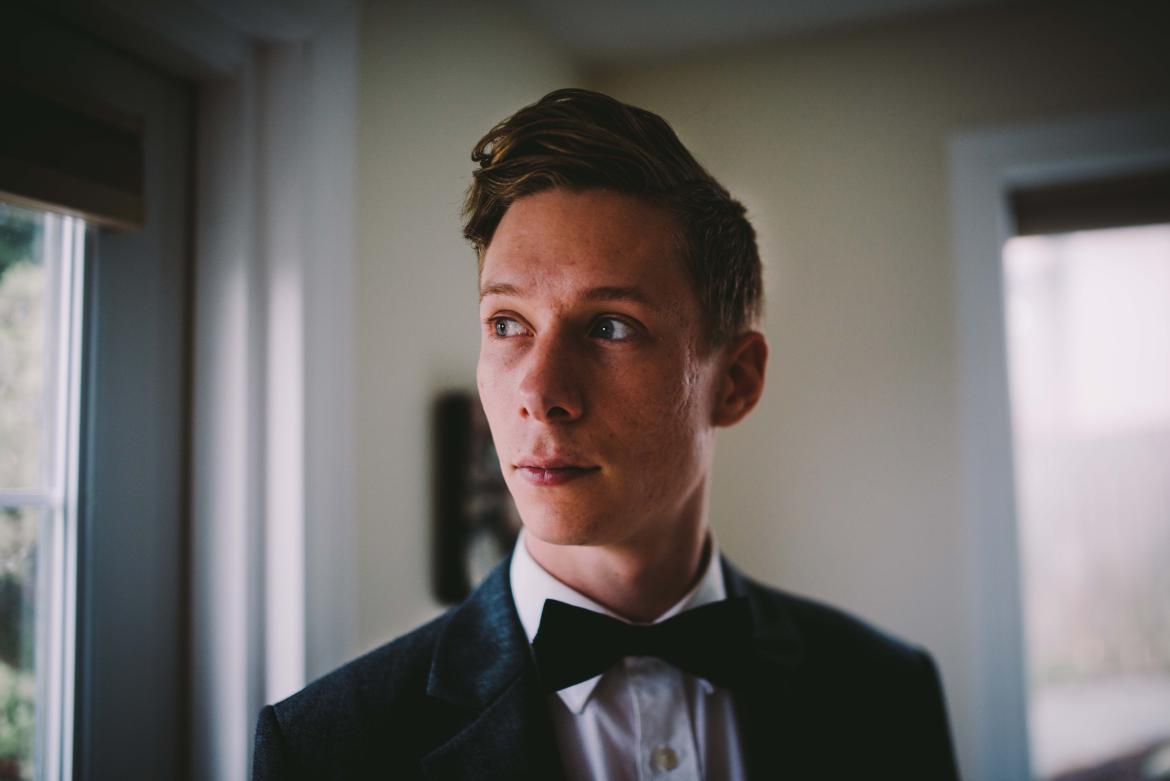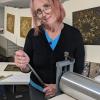
A piece of music Liam Ross Gibson (Diploma in Jazz Studies '10) composed is currently on a cross-Canada tour with contrabass player David Riedstra.
June 6, 2018 - 6:00pm
Growing up in Nanaimo, Liam Ross Gibson (Diploma in Jazz Studies ’10) had his passion for music fuelled by a summer jazz program that VIU faculty ran at the time. He has followed his passion all the way to graduate school, completing a master’s degree in composition from the University of Manitoba earlier this year. He recently settled back on Vancouver Island, and a piece of music he composed is on contrabass player David Riedstra’s cross-Canada tour.
How did you end up at VIU?
During high school I became increasingly convinced that I wanted to pursue music as a career. At the time, I was particularly interested in jazz, so VIU’s Jazz Studies program seemed like a perfect fit, especially given that I was already living in Nanaimo. For a couple summers in high school I attended the summer jazz program run by VIU faculty, and that experience helped fuel my enthusiasm to study there.
Approaching the end of my second year at VIU, I began to become more interested in composition. In 2011 I auditioned for the composition and theory program at the University of Victoria (UVic), and completed my Bachelor of Music there in 2015, studying composition with Christopher Butterfield, John Celona and Dániel Péter Biró, and piano with Eva Solar Kinderman. Over the following year I continued to compose, taught piano privately and continued to play in various local bands such as Top Men and Bridal Party.
Why did you decide to pursue graduate studies?
I had pretty much made up my mind to pursue the academic route while still studying at UVic. I decided to get a master’s degree for several reasons: to prepare for a PhD down the road, to study with different people and, first and foremost, to improve as a musician. As with all graduate work, finding the right advisor is key. I chose the University of Manitoba because the two composers there (Gordon Fitzell and Örjan Sandred) both compose music that I like, and share a dedication to experimentation. The structure of the program was appealing as well, in that it’s focused on high-quality performances of student pieces. During my time there I had a chance to have pieces performed by both student and professional ensembles, with lots of opportunities for collaboration and feedback.
What draws you to music composition?
I’ve always loved plans and patterns; part of me sees a great deal of similarity between spending hours building Lego as a child, and spending hours now with graphs and manuscript paper. It was while I was still at VIU that I first started to become interested in composing music for people other than myself to play. I’d already been playing and writing in rock bands for a while, but up until my second year at VIU I had never written something for someone else to play. Doing so for a class project proved to be far more exciting than I had previously imagined, and after that the writing was sort of on the wall.
My process is different for each piece I write. I suppose a connecting thread is that I usually begin by thinking about the specific individuals I’m writing for, and the capabilities and possibilities of their instruments. Lately I’ve been feeling as if my aforementioned love of planning and structure has been getting in the way, so I’ve been trying to make more room in my process for intuitive discoveries and decisions.
Tell us about the piece you wrote that’s on a cross-country tour right now.
Back in November or thereabouts, my friend Dave Riedstra, who did his master’s in composition at UVic while I was there doing my undergrad, asked me to write a solo double bass piece for his cross-country tour. I’d worked with Dave quite a few times before, and was eager to do so again. Dave’s background, like mine, is as more of a jazz player, so I knew he had a stronger pizzicato technique than a lot of purely classical bass players. Following on from other pieces I’ve written recently, this piece (entitled 'Passacaglia' after a 17th century form based on repeated variations) is essentially the same thing looped over and over again, with layers of increasing complexity added each time. By the end of the piece, Dave has to rapidly switch between different tempi, techniques and tuning systems, all the while maintaining a sense of continuity. It’s been a pleasure to work with someone who is not only willing, but excited to tackle this type of challenge.
What’s next for you?
I’m planning to settle on Vancouver Island for the near future. Doing a PhD is still likely, but probably not for a few years at least. At the moment I want to support myself by teaching music in various capacities, and continue collaborating with other musicians. Now that I’m done school I’m excited to get back to performing more, both solo and as part of the electronic band Top Men.
Give us one random fact about yourself.
I have never seen the movie Titanic.
Tags: Music | Our Alumni






